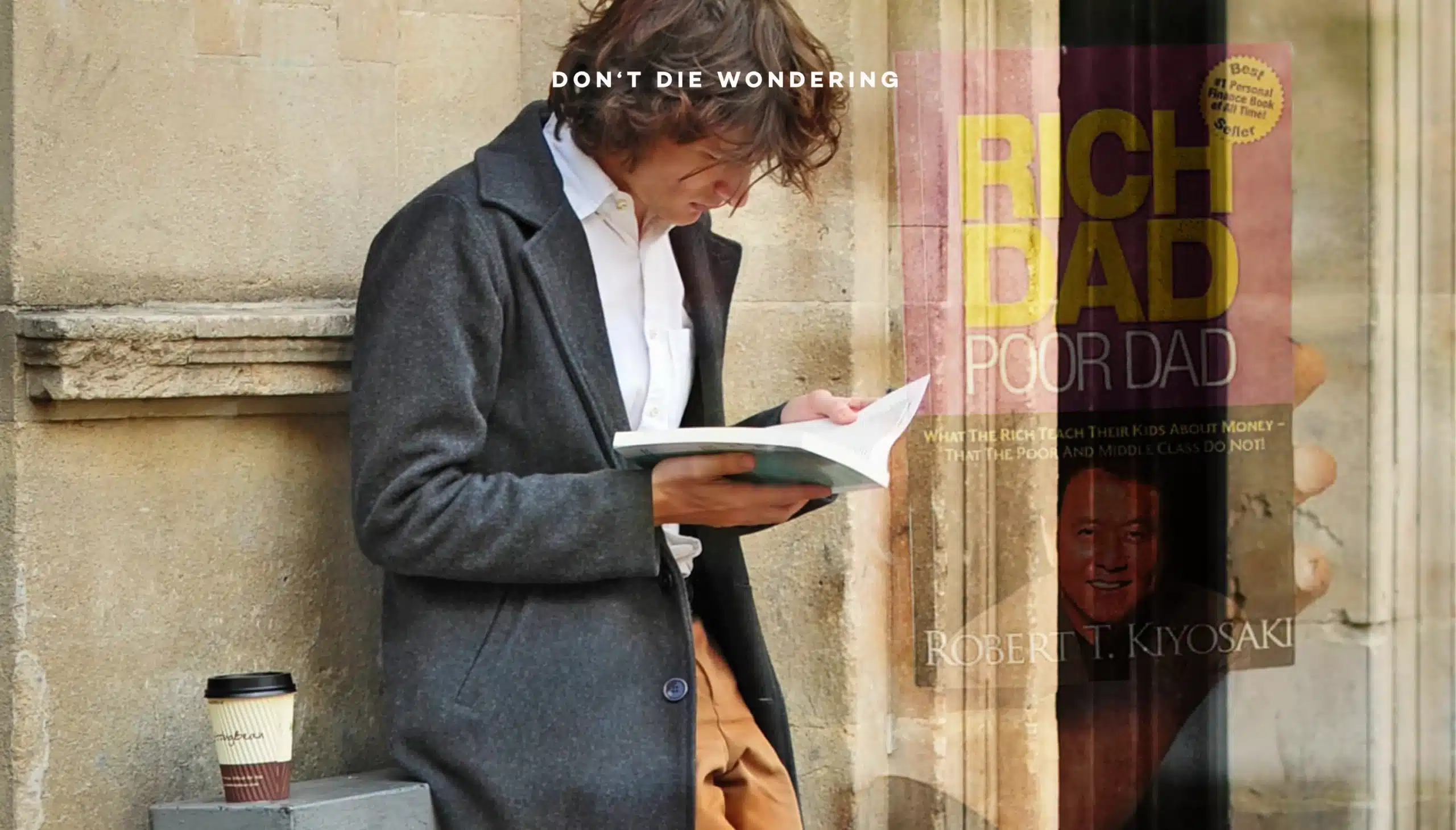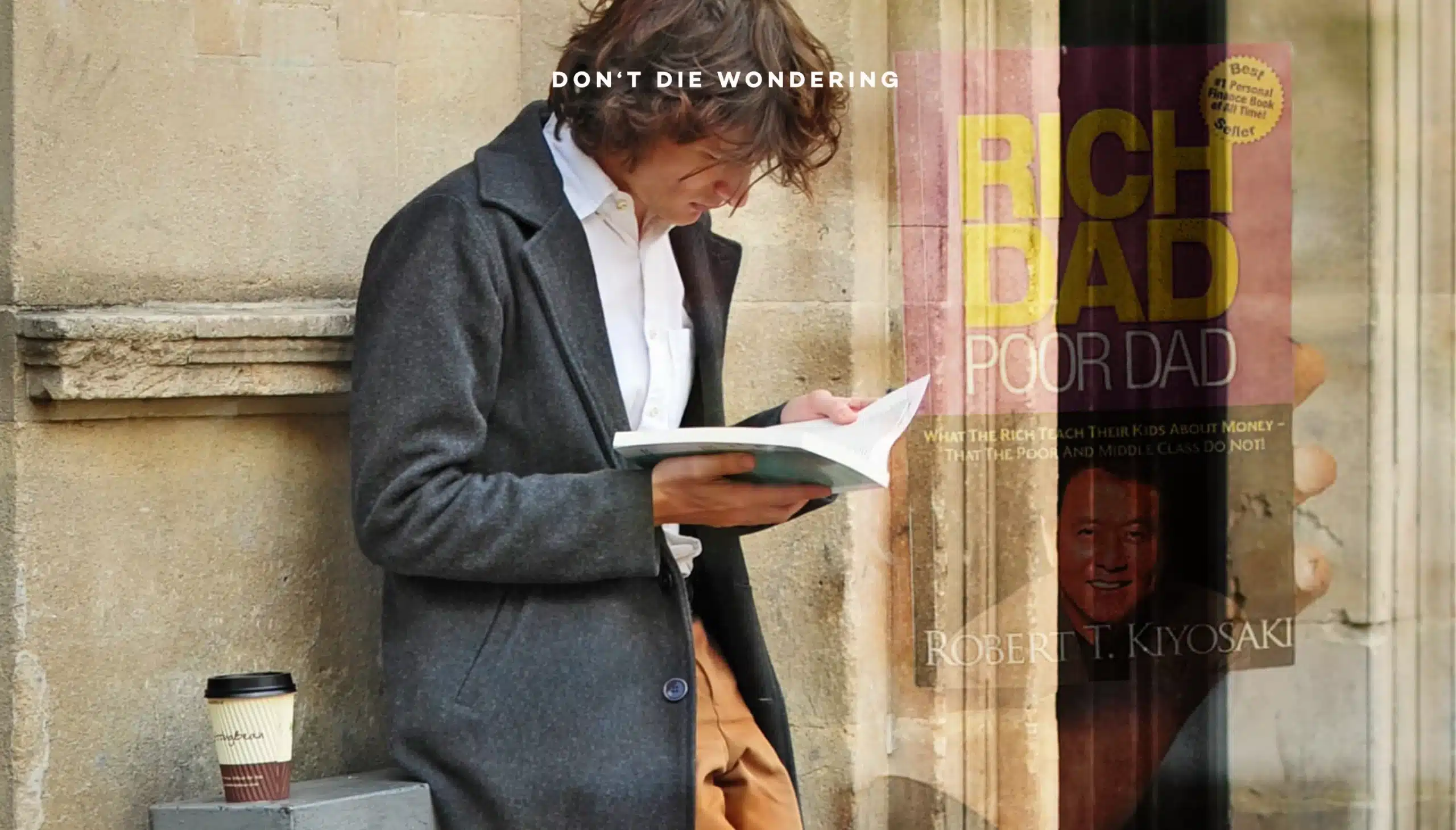They say all the financially responsible people wanting to get wealthy have read Rich Dad, Poor Dad. Save yourself the hassle.
Published in 1997, Rich Dad Poor Dad by Robert Kiyosaki and Sharon Lechter is that kind of book all your favourite financial gurus have read (and keep on their bedside table to make sure everyone they know is aware of this). Despite its almost clichéd popularity, after its release it soon became a cultural phenomenon that challenged conventional wisdom around money and investing.
The book draws on Kiyosaki’s own upbringing learning lessons about finance from his educated but poor dad, and his friend’s entrepreneurial rich dad, to bust myths around earning, saving, and building wealth. Rich Dad Poor Dad reveals how the path to financial freedom lies not simply in working hard and cutting costs, but in leveraging entrepreneurship, assets, and investments to break from just linear income. The book has sold over 41 million copies worldwide, making it one of the bestselling personal finance books of all time. Its counterintuitive principles resonated widely, as Kiyosaki provided a new lens challenging traditional beliefs around money.

Security vs Wealth
Robert Kiyosaki’s Rich Dad Poor Dad highlights the difference between pursuing job security and taking financial risks to build wealth. Kiyosaki argues that traditional advice leads to being stuck in the rat race working for money, while entrepreneurship and savvy investing creates passive income and freedom.
Build Your Assets
A key distinction in the book is between assets that generate income vs. liabilities that simply cost money. Kiyosaki encourages building assets like real estate, royalties, and businesses rather than overspending on depreciating consumer goods.
Business is The Way
Many play it safe and invest time in education and skills to get a good job. But Kiyosaki argues that starting a business, even if riskier, provides potential for much greater wealth by owning the means of production.
Make Your Money Work For You
Savings are important as an emergency fund, but your money should be working for you. Kiyosaki views mutual funds as superior to cash savings but real estate and business ownership as more transformative vehicles for wealth.
Pay Yourself First
Kiyosaki advocates paying yourself first – setting aside savings and investments before living expenses. This ensures your money works for your future rather than just sustaining your lifestyle.
Key Takings
The core message of Rich Dad Poor Dad is to break from traditional linear income paths and instead take financial risks and harness entrepreneurship and investments to secure your financial future. Kiyosaki provides a new lens challenging conventional wisdom around pursuing job security, cutting costs, and reducing spending. Instead he advocates leveraging assets, ownership, and investments to create passive income streams and true financial freedom.


